TSA Expanding Beyond Airports
TheTransportation Security Administration is expanding its purview to train stations and sporting events.
Having endeared themselves to the traveling public, the Transportation Security Administration is expanding its purview to train stations and sporting events.
NYT (“T.S.A. Expands Duties Beyond Airport Security“):
As hundreds of commuters emerged from Amtrak and commuter trains at Union Station on a recent morning, an armed squad of men and women dressed in bulletproof vests made their way through the crowds.
The squad was not with the Washington police department or Amtrak’s police force, but was one of the Transportation Security Administration’s Visible Intermodal Prevention and Response squads — VIPR teams for short — assigned to perform random security sweeps to prevent terrorist attacks at transportation hubs across the United States.
“The T.S.A., huh,” said Donald Neubauer of Greenville, Ohio, as he walked past the squad. “I thought they were just at the airports.”
With little fanfare, the agency best known for airport screenings has vastly expanded its reach to sporting events, music festivals, rodeos, highway weigh stations and train terminals. Not everyone is happy.
T.S.A. and local law enforcement officials say the teams are a critical component of the nation’s counterterrorism efforts, but some members of Congress, auditors at the Department of Homeland Security and civil liberties groups are sounding alarms. The teams are also raising hackles among passengers who call them unnecessary and intrusive.
“Our mandate is to provide security and counterterrorism operations for all high-risk transportation targets, not just airports and aviation,” said John S. Pistole, the administrator of the agency. “The VIPR teams are a big part of that.”
Some in Congress, however, say the T.S.A. has not demonstrated that the teams are effective. Auditors at the Department of Homeland Security are asking questions about whether the teams are properly trained and deployed based on actual security threats.
Civil liberties groups say that the VIPR teams have little to do with the agency’s original mission to provide security screenings at airports and that in some cases their actions amount to warrantless searches in violation of constitutional protections.
“The problem with T.S.A. stopping and searching people in public places outside the airport is that there are no real legal standards, or probable cause,” said Khaliah Barnes, administrative law counsel at the Electronic Privacy Information Center in Washington. “It’s something that is easily abused because the reason that they are conducting the stops is shrouded in secrecy.”
T.S.A. officials respond that the random searches are “special needs” or “administrative searches” that are exempt from probable cause because they further the government’s need to prevent terrorist attacks.
I’ve always contended TSA searches in airports were rather clearly unreasonable and therefore in violation of the 4th Amendment. But, if they’re not, I see no obvious reason why searching people without reasonable suspicion at train stations and sporting events is any less unreasonable. Sure, we had the 9/11 attacks, but any large public venue is a potential terrorist target; indeed, the presence of airport security would seem to make other venues more attractive.
Of course, as Matt Yglesias reminds us, the general public is perfectly pleased with the job TSA is doing, with a majority giving them Good (41%) or Excellent (13%) ratings and only 12% rating them Poor. And a whopping 85% surveyed said TSA was at least somewhat effective at preventing acts of terrorism. So,while they’re the whipping boy of a lot of us, myself decidedly included, there’s unlikely to be any backlash at this expansion of their remit.
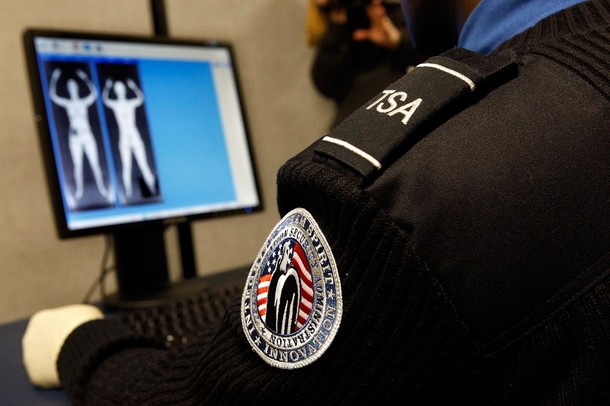

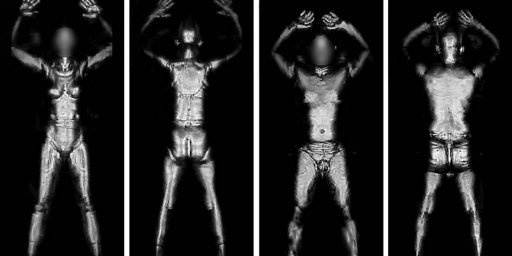
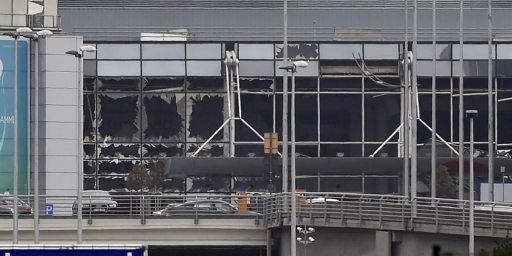
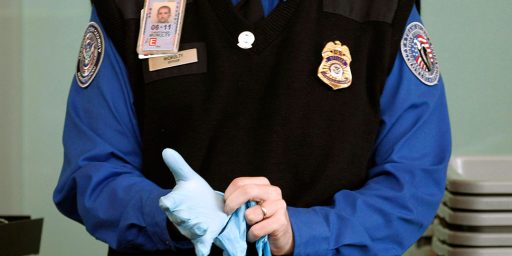
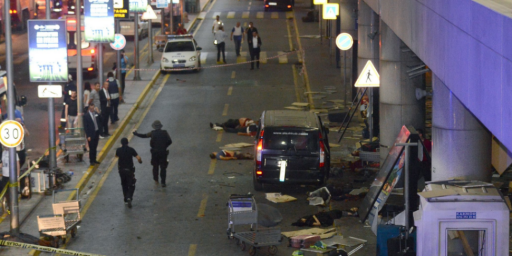

Wait a second, so where can I reasonably expect to not have my person or belongings searched without a warrant or probable cause? I thought the reasoning used to be that by purchasing a ticket on an airplane flight, I was waiving my 4th amendment rights. But now it’s not limited to airline flights either? Is the 4th Amendment suspended anywhere other than in my house? Is that really their interpretation?
I hit submit too early.
Legally speaking, the TSA searches are immune from the 4th Amendment based on US v Davis, which found that searches at airports are “administrative searches” and that they were ok only because they are “no more intrusive or intensive than necessary, in light of current technology, to detect weapons or explosives, confined in good faith to that purpose, and passengers may avoid the search by electing not to fly.”
But if they are now able to expand that immunity beyond the airport, then how can passengers avoid the search? By not traveling at all?
Mr. Pistole apparently believes rodeos are high risk transportation targets. Also, with his name, why is he not running the NRA?
A couple of thoughts:
High risk: What do they define as high risk? Normally risk is defined in terms of probability and consequence. Consequence can usually be quantified. I’m wondering how the TSA figures out probabability and what information they have to justify their probabilities. I would guess they just make stuff up.
Transportation targets: sporting events? rodeos? music festival? In what shape or form are they transportation targets, other than the fact you take transportation to get to them.
What’s next in the name of security? Internal passports?
I think I prefer PRISM, and the other electronic surveillance things. At least they are more discrete about it, and don’t get in my face while going through my stuff.
I want a less aggressive police state. Also, if the powers that be would give me wake up calls when I have a dentist appointment, that would be nice — just pretend to be with the dentist’s office though, so I don’t get to freaked out.
@Ben: @Gustopher: I’m not sure how trains materially differ from planes under the “administrative searches” rationale; they’re both public modes of transport to which one buys a ticket. Similarly, rodeos, football games, rock concerts, and the like are public accommodations to which one buys tickets and can be made to consent to a search under the contract. Indeed, most of those places search you now–the only difference is they use private security contractors rather than government agents.
Now, I happen to think it’s all unconstitutional because government agents subject to the 4th Amendment in ways private security guards aren’t. But, hey, SCOTUS disagrees.
Hell, we’re subject to all manner of searches just for driving in our private automobiles.
@
The difference is that, absent specific exceptions, the police still can’t search your car for contraband without probable cause, and evidence gets thrown out for that all the time.
And the TSA has already announced its intentions to set up at truck stops and rest areas and search people in their own private vehicles. All apparently immune from the 4th Amendment.
@James Joyner:
Because you can’t drive a train into a skyscraper?
@Stormy Dragon:
You could derail it into something, but obviously it wouldn’t cause the same kind of destruction as an airplane filled with jet fuel.
@PJ:
However given that spectacular loss of life is still a very scary thing (in the wake of the Spanish Train Crash), property destruction doesn’t need to be the primary goal of an attack.
Given the Madrid train bombings in 2004 (191 killed and 1,800 injured) and the 2005 attacks on London Transport (52 killed and over 700 injured) I am surprised it has taken this long for the TSA to expand past airports. Also in light of the Boston marathon bombings you can follow the logic to include sporting venues.
The reality is that terrorists and rampage killers are going to attack places where large numbers of people are congregated to get the highest number of victims – be that airports, trains, schools, movie theatres or office towers.
Despite (or perhaps because of) growing up with the risk of IRA bombings, I am very reluctant to have security measures expand. I feel that if you dramatically change the daily way you live then the terrorists have fulfilled one of their main goals – to have you live in fear of their actions. However, I understand that the cost of this will be some people losing their lives in attacks that could have been prevented by enhanced security.
It appears many people are not prepared to pay that cost and prefer the increased security.
@Scott:
Probably a Trusted Citizen pass based on the Trusted Traveler program. Members of Congress, their staff, etc to be exempt.
@walt moffett: We can make it more efficient with RFID tags under the skin.
@Lynda:
Yep that’s the deal.
To my mind, if a person has ever complained that the government didn’t do “enough” to prevent a terrorist attack, it’s incongruous for them to also complain about things like the TSA.
We can’t have it both ways. We’re either willing to accept the risk that it’s possible some terrorist attacks may be “successful” (i.e., people die). Or we accept that some of our freedoms will be impinged … in come cases significantly. Oh, and with the later option, some attacks may still be successful anyway.
The people who really bug me are the ones who seem to feel that the govenment has a responsibility to do everything it can to prevent any and all attacks … unless it involves inconveniencing them personally. The “Israeli method”: If someone “looks like” a terrorist (or an ‘illegal alien’), the constitution need not apply … but don’t you dare even think about violating MY rights.
@Lynda:
I always hear that, but how true is it really? I hate to break it to them, but the bus that cuts me off when I’m trying to pull into the long-term parking section causes me more trouble at the airport than the terrorists do. How would they even know if our actions change because of them? I think their goals are (a) to kill enemies and (b) to influence policy, and that last one is iffy.
@Todd: That’s assuming there’s only one thing that the government can do, and we need to choose the right amount of it. I think that the TSA’s critics would say that they’re doing the wrong things – in which case, it’s very easy to do too much and not enough at the same time.
Yeah, bend over and take your cavity search, sheep.
@Ben:
At this point I’d be careful about any implication there’s something of interest to them in your house.
@gVOR08: The only reason I excepted my house is because that’s the one area the Supreme Court seems to still want to maintain SOME shred of privacy rights, based on the dog sniff cases this spring.
@Lynda:
Ooh, like the security line at an airport? Like the masses of people clumped closely together waiting to go through security at a venue?
I mean, if terrorists and rampage killers really did want to kill large masses of people, all they’d have to do is go to where the TSA or other security has helpfully corralled them.
@Todd:
Well, yes and no. I can complain that the government does too much of the stupid things and not enough of the smart things, and that one of the stupid things is the TSA.
@James Joyner:
Lately in NYC they’ve started bag searches to go into public concerts in the parks, onto the Governor’s Island ferry, etc. The searches are bag only and very perfunctory, but I always make a point to ask “what is this search for?” They usually answer “for illegal weapons” and I then say “so if I had a gun in my jacket pocket and not in my bag, you wouldn’t find it, would you?” This produces a moment of confusion, and then I’m waved through.
*sigh*
The other way I’ve been dealing with bag searches is to put a variety of, um, sexual devices on top of what’s in my bag. No one really wants to rifle through that.
Hard to have a police state without wandering bands of armed federal goons inserting themselves, well, everywhere. Malls are next.
Meanwhile, one enjoys a much higher likelihood of being struck by lightning than so much as a scratch from Them Terrists.
America! Thy madness doth proceed apace!
@PJ:
The most effective ways to derail a train do not involve even approaching a train station. You attack the tracks somewhere along the route. It is very hard to drive a train off the tracks, but easy to break the tracks.
But this is yet another reason to oppose public transportation projects. They are just big targets that apparently require the abrogation of the Bill of Rights to function.
@Pinky:
I may be misunderstanding your point but isn’t it pretty clear we ARE changing our actions because of them – for example we started having to take off our shoes at the airport because of a failed shoe bomb attempt.
I believe the definition of terrorism is the “Systematic use of violence to create a general climate of fear in a population and thereby to bring about a particular political objective”. I agree that their main goal is to kill but I guess their motto might be “If you can’t kill them, scare them”. I am not even sure what the stated political goals of an organization like Al Queda are since they seem to be such a loose affiliation of groups.
Removing your shoes may not quite rise to the level of “general climate of fear” but it’s certainly a long way from insouciance.
And as Rafer points out, enhanced security might just transfer the place terrorists target rather than ameliorate their impact.
The Transportation Security Administration is at train stations? That’s some hot news!
The VIPR teams started in 2005 as a response to the Madrid bombings. They are specifically authorized under Title 6 of the US Code.
Like them or not (I don’t, FWIW), pretending this is new is either just ignorant or more of the same bullshit of pretending the expansion of the security state didn’t largely happen years ago as a response to 911. Usually it’s done to criticize Obama/Democrats for things the critic fully supported under President GW Bush. I’ve seen these guys for years at train stations in Chicago. I have not, however, ever been searched by them or even seen anyone searched by them. They are usually just standing around in a small group, often with a dog.
The central problem with the TSA is that they are being allowed to call their invasive searches “administrative searches” in order to circumvent complying with the US constitution and other laws (such as those pertaining to sexual assault) which would otherwise render their searches illegal. The definition of this term must be clarified and narrowed so that federal government agencies can’t hide behind illegal searches by proclaiming that their searches are somehow “administrative” and therefore exempt from any laws.
Honestly, I wouldn’t have a problem with an increased presence of regular police officers at train stations and football games because they are not authorized to conduct “administrative searches” and must comply with our laws. The TSA doesn’t feel that it needs to obey our laws because it is conducting “administrative searches”, and so it feels up the body parts of our wives and children instead.
It is the abuse of this loophole in the law that has put this agency in ill favor, and in order to stop the TSA’s abuse, I believe we either have to do away with the agency entirely or the concept of an “administrative search” must be reworked so that the legal protections against abuse for law abiding citizens can be reestablished. Failure to do so will result in the TSA turning into America’s equivalent of the Nazis or the Gestapo. Of that there is little doubt.
@mantis: +1000
I was about to write a comment that the TSA has been doing stuff at train stations for about a decade when I saw your comment.
@ JKB
Right. We should not build any more bridges or tunnels either. Maybe we should let the terrorists dictate that we go back to the age of the horse & buggy.
I saw a story the other day where a woman’s car was searched while she was on a flight. Apparently this is legal and the TSA does not need a warrant to do it.
@anjin-san:
Well, given that passenger trains are little threat to the wider populace the imposition of searches on train passenger is a bit overkill. Freight trains are far better terrorist targets and as Canada recently showed, the opposition to pipelines forcing crude oil into vulnerable tank cars transiting population areas is foolish. If the Obama administration wants to make America safer, ending their stalling on pipelines would be far more beneficial.
Bridges and tunnels don’t require molesting children and elderly people or abrogating the 4th amendment.
@JKB:
Right. Because it’s impossible to blow up a highway.
Well, I think if you check with the U.S. Army and Air Force, they will tell you that while not impossible it is damn difficult to blow up a highway to an extent that makes it impassible for any considerable amount of time. You generally need a fleet of bomber or heavy artillery or an occupying force of combat engineers. Even then, assuming hostilities are suppressed, the highway can be rebuilt in a matter of days and if pressed hours. In addition, you pretty much can’t blow up a highway, bridge or tunnel by exploding a vehicle upon it, passing through it, or passing beneath it.
But let’s get back to the public transportation projects that the TSA feels compelled to molest the passengers of.
@ JKB
Right. Because a pipeline that is thousands of miles long could not possibly be a terrorist target – it’s invulnerable.
@anjin-san:
Not invulnerable but generally requires at least a back hoe and time. The time is the key as that leads to detection and interdiction. In any case, any damage would be underground so while shutting down the pipeline it would be little threat to the populace in general. And as was shown in the Iraqi withdrawal from Kuwait, pipeline can be repaired and back in service almost instantaneously compared to what it has taken to replace a couple buildings in New York.
@D:
Perish the thought, USA government could never rise to the efficiency of the Germans.
Your real result I suspect would be more Russian in its level of efficiency (and thus simultaneous pointless waste of economic resources and poor relative return on security man hours spent).
When I visit USA, I now tend to train whenever possible given how staggeringly unpleasant your airports have become. I hope to god the TSA doesn’t have the resources to bring the “airport experience” in security theatre to trains.
Doubtless the approval levels for TSA can be put down to provincial ignorance given how rarely Americans travel overseas and how rarely exposed they are to other approaches, moderately less cretinous and time wasting, than theirs.
Talk about jumping the shark…the Keystone pipeline is now going to make us all safer?
It’s like a daily battle between you and Jenos to see who can type the dumber thing.
@Scott:
Doubtful, too close to forearm tattoos. Next up will be a courtesy scan of your laptop and other gadgets for terrorism related materials, your luggage for tobacco and other noxious substances.
Who knows might even see a return of the private rail car for the high rollers/donor class.
‘Administrative searches’. So if they find something illegal, they can’t prosecute, because it’s an ‘administrative search’?
I think this is obviously a result of intense lobbying by the Not-Quite-Standardized Long Steel Table industry. The TSA is their singe biggest customer. “Big Table” is very powerful in Washington.
@Barry:
They can’t but they can rat you out to the nearest law enforcement who will use their “confidential informant” method of asserting probable cause to detain and search you. Oh, look, your suitcase is already open in plain view where the TSA searcher laid it on top. wink, wink, nod, nod, Bob’s your uncle.
Took my grandson to the Kennedy Space Center yesterday. To my surprise, they now have you walk through a magnetometer. So they conclusively proved that I have a prosthetic hip.
But as I reflected on that — after grumbling to myself that more people are likely to become casualties if a bomber/shooter were to invade the local Mall — I realized that, at least in the US, the targets that Al Qaida has chosen have been symbolic (which the Space Center obviously is). The WTC was emblematic of the triumph of capitalism; it was attacked twice by the same movement. The Pentagon, of course. Flight 93 is supposed to have been targeting the US Capital building. There’s also the Cole. And the US African embassies which naturally killed beaucoodles of poor innocent Africans that American embassy staffers (12). And I see that the embassies were bombed on the 8th anniversary of the arrival of US troops in Saudi Arabia.
And the 4th Amendment? I invite anyone here to live on a boat as I have done at times. Your ‘home’ is subject to search without warrent at any time, even if permanently moored, because the legal definition of boat implies that you could flee on it at a moment’s notice. Freedom is a very very relative thing.
I used to be recommended this web site by means of my cousin.
I am not certain whether or not this post is written through him as no one
else know such specified about my difficulty.
You are wonderful! Thank you!
Well, I don’t know about prosecution, but anything outside the scope of their search (for example, drugs) is not subject to confiscation, nor can they detain/arrest you for it. However, they can, as concerned citizens, notify a nearby police officer, who now has probable cause to detain and search you. Even better, if he shows up before they have finished their “administrative search” he doesn’t even need that, as your contraband is in plain view.
That’s what the TSA does when they find drugs in the airport.
@JKB: a. Not all piplelines are compleltey underground. b. They all have above ground support facilities like pumping stations. c. Look up Weibo Ludwig.